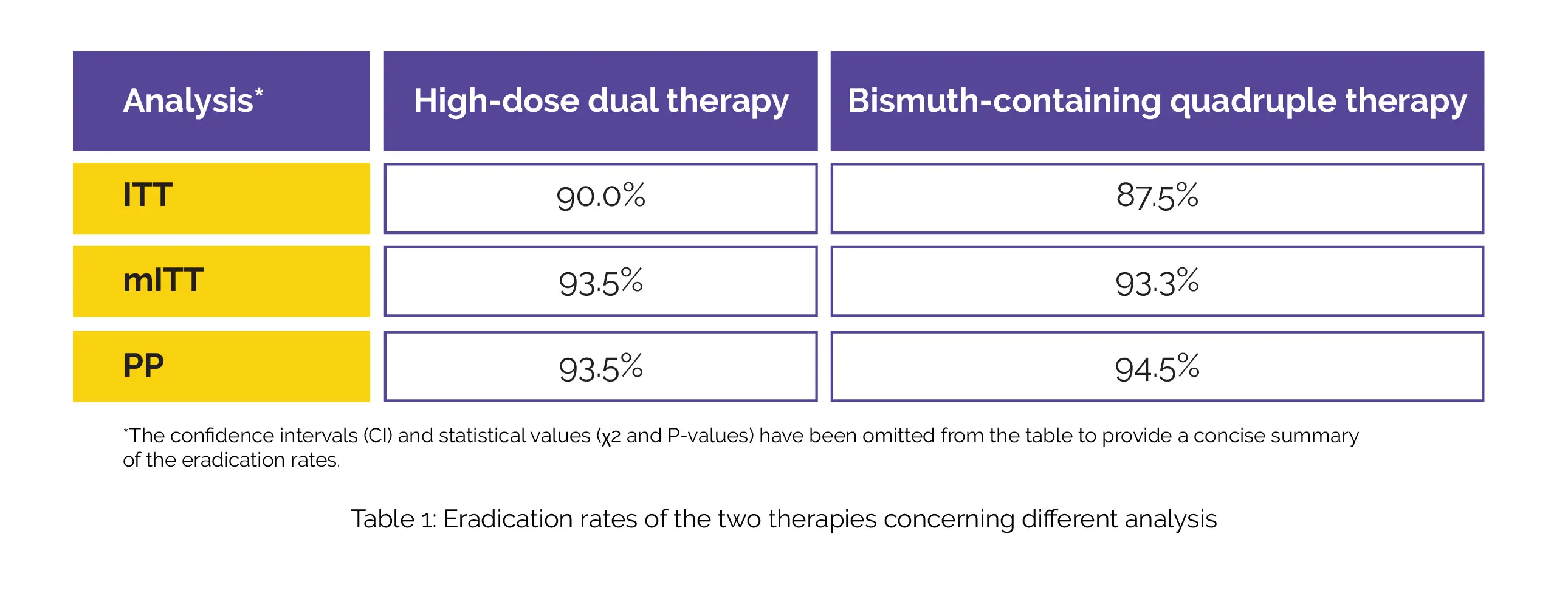Categories
Change Password!
Reset Password!


New dual therapy exhibits promising outcomes for treating H. pylori infection compared to traditional quadruple therapy.
A groundbreaking randomized controlled clinical trial has revealed an innovative and cost-effective therapy for Helicobacter pylori (H. pylori) illness in servicemen. Led by researcher Zhang XM, the study compared the effectiveness of high-dose dual therapy to bismuth-containing quadruple regimen (an effective first-line therapy).
The trial included 160 servicemen (74 males and 86 females in the age group of 20-74 years) who had not received prior therapy for H. pylori infection. They were randomly consigned to either 14-day high-dose dual therapy or bismuth-containing quadruple therapy. The primary focus was on assessing rates of eradication, adverse events, compliance, and drug costs.
For continuous variables, the t-test was utilized. For categorical variables, the Chi-square test was utilized. Remarkably, the study found no significant difference in H. pylori eradication rates between the two treatment groups as per the intention-to-treat (ITT), modified intention-to-treat (mITT) and per-protocol (PP) analysis, as illustrated in Table 1:

This outcome suggests that both dual therapy and quadruple therapy are equally effective in combating the infection. However, an interesting finding emerged regarding the occurrence of side effects. The dual therapy group experienced significantly fewer overall side effects and better tolerability compared to the quadruple therapy group (Table 2).

The dual therapy demonstrated a 32.0% reduction in medication costs compared to the quadruple therapy, with expenses amounting to 472.10 RMB as opposed to 693.94 RMB. These findings highlight the potential of the dual therapy regimen as a promising first-line choice for H. pylori elimination.
Its comparable eradication rates, lower incidence of side effects, better patient compliance, and cost savings make it an appealing alternative to traditional quadruple therapy. Also, the dual therapy had a grade B eradication rate (90% good efficacy). However, further evaluation and validation are imperative to establish the dual therapy regimen as a preferred treatment option.
Chinese Journal of Internal Medicine
[Efficacy of high-dose dual therapy for Helicobacter pylori infection eradication in servicemen: a randomized controlled trial]
Zhang XM et al.
Comments (1)